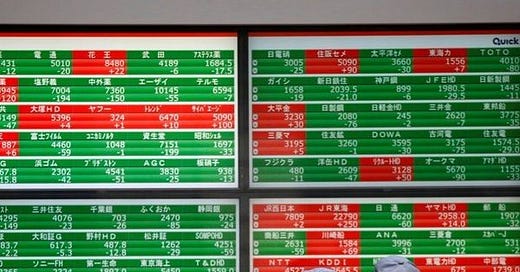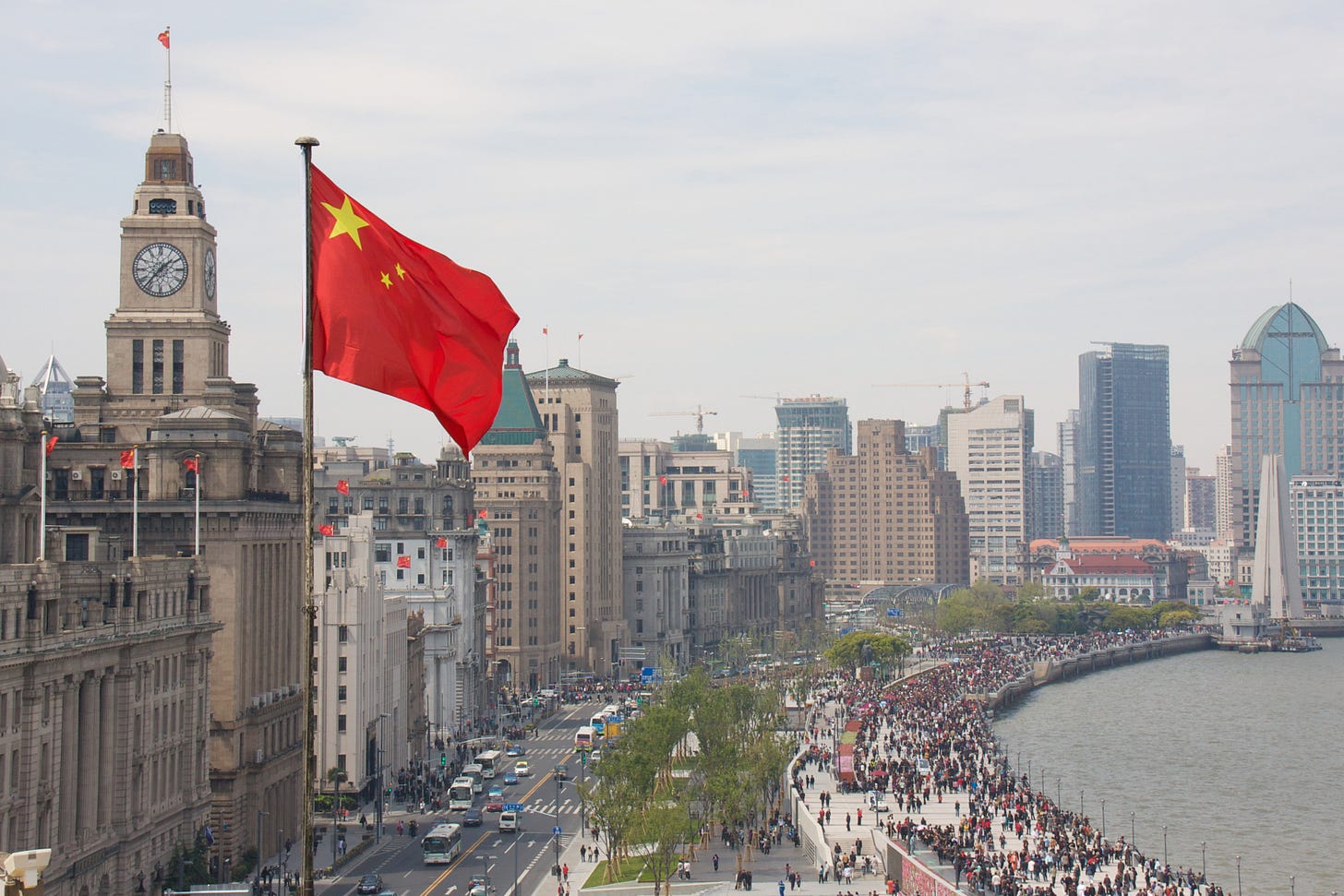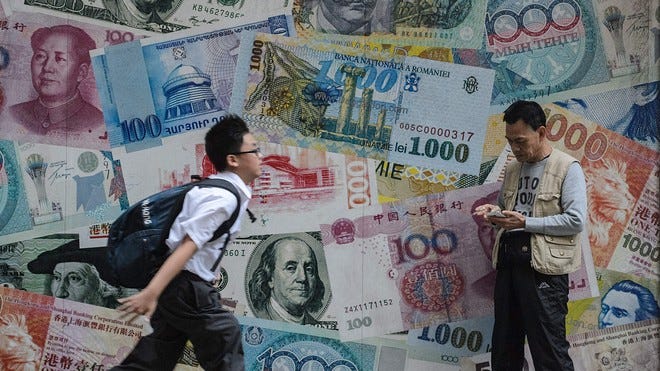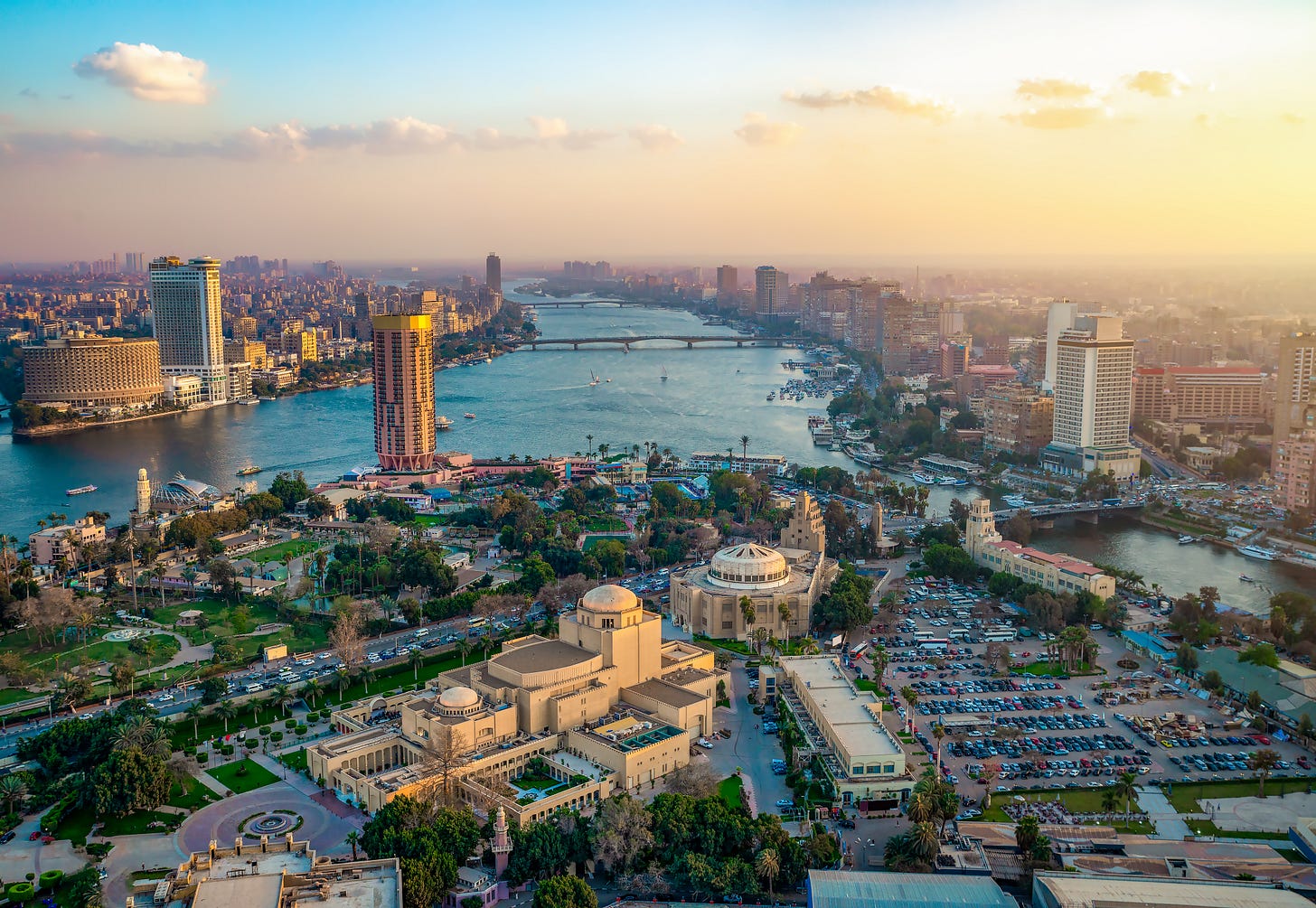Emerging Markets Monitor - August 19
Global Contagion Looms on China Slowdown, China Moves to Shore Up Economy, BRICS and the Dollar, Panama Canal Traffic Jam, Egypt CB Governor Extended
The Top 5 Stories Shaping Emerging Markets from Global Media - August 19
Global Stock Managers on Guard as China Pain Set to Spread
Bloomberg
“Global stock managers are bracing for pain as China’s dramatic slowdown undermines the prospects for companies elsewhere that rely on the world’s second-largest economy.”
“Once the most promising bet of the year, investments linked to China have turned into a bane as its property market slump risks spiraling into a systemic crisis. While the selloff so far has been concentrated in Chinese shares, pressure is rising for stocks in Europe, the US and other parts of Asia, whose businesses are swayed by demand in China.”
“Caterpillar Inc. and Dupont de Nemours Inc. are among a long list of firms that have sounded the alarm in their latest earnings releases. With China’s growth forecast getting slashed, investors are seeking to de-risk their portfolios. An MSCI index that tracks global companies with the biggest exposure to China has retreated about 10% this month, double the decline in the broader gauge of world stocks, while Bank of America Corp. strategists see US stocks dropping another 4% as the woes grow.”
“‘Frankly, the entire world is inextricably linked to China. Big global firms either sell to China or source from China,’ said Jason Hsu, chief investment officer at Rayliant Global Advisors. ‘These firms will have to meaningfully revise downward their revenue from China for the next 12 months.’”
“Confidence among investors, businesses and consumers over China’s economic outlook is rapidly dwindling following a flurry of negative news headlines this week — from dismal economic data to shadow banking giant Zhongzhi Enterprise Group Co halting payments to thousands of customers, and embattled property group Country Garden Holdings Co. edging closer to a public bond default.”
“The mounting worries have sent equity benchmarks in Hong Kong and China to their lowest levels since November, with the Hang Seng Index entering a bear market on Friday. And with the country’s dominant status in the global supply chain, the concerns have also started to hit investor sentiment in Europe and the US, with stock markets in both regions experiencing their biggest pullback since March.” Bloomberg reports.
China Moves to Shore Up Investor Confidence in the Economy
Financial Times
“China on Friday unveiled a package of reforms to boost investment in its securities markets and stepped up its defence of the renminbi, in the latest efforts to shore up confidence in the world’s second-largest economy.”
“The moves follow recent gloomy economic data that showed weakening exports and waning consumer confidence, amid growing concern about the risk of renewed crisis in China’s once-mighty property sector.”
“Country Garden, China’s largest privately owned homebuilder and widely seen as one of the country’s safer developers, missed payments on its international debts this month, while entities linked to sprawling conglomerate Zhongzhi this week failed to repay savings products.”
“The missed payments have fuelled fears about the property sector, which drives more than a quarter of Chinese economic activity but fell into a sector-wide liquidity crisis after developer China Evergrande defaulted on its dollar-denominated debts in late 2021.”
“…The PBoC is under pressure to bolster growth and this week injected Rmb757bn ($104bn) of short-term liquidity into China’s banking system…China has set an economic growth target of 5 per cent this year, its lowest in decades. But its post-Covid recovery has been losing momentum and the country slipped into consumer price deflation last month.” The FT reports.
Would a Larger BRICS Mean Faster De-Dollarization? Not Likely
ING (From Think.ING.com)
“The BRICS grouping of major emerging economies, Brazil, India, China, South Africa and Russia, is holding its fifteenth summit later this month. Up for discussion: an expansion of the bloc, greater use of local currencies and the possibility of a BRICS currency which may have the potential to challenge the dominance of the US dollar.”
”Any expansion of the BRICS grouping could determine the speed with which the bloc adopts commercial and financial systems outside of the dollar sphere. Speculation is rife as to how many countries, if any, will join the club – for the first expansion in a decade.”
”In order to evaluate how the political ambitions correlate with underlying economic trends, we take a closer look at the overall evolution of the US dollar’s role in the various areas of the global economy and markets. Here are the observations so far:”
”There has been a drop in the dollar’s share of central banks’ FX reserves, but dollar usage has held up very well in commerce, private assets, debt issuance, and generally on the global FX market.”
”Among the potential dollar challengers, the euro may seem like a runner-up, but its dominance is seen only in Europe. Looking at the BRICS, China’s amplification of renminbi swap lines seems to have helped promote the use of its currency in trade and international reserves, and Russia’s geopolitical aversion to the dollar gave CNY an additional boost, but China’s capital controls and low issuance of panda bonds remain an obstacle.”
“The rising usage of alternative currencies does not seem to be threatening the dollar but rather increasing the competition among the regional currencies amid fragmentation of the trade and capital flows.”
”No currency has made any inroad to the dollar’s pre-eminent status as the issuance currency of choice. Having been a major factor in removing sterling’s crown last century, challenging the dollar’s status in the international debt market has to be a central strategy for the young pretenders.”
”Overall, we do not see any conclusive evidence that the dollar is on the path of structural decline at this point. However, it is still facing challenges, stemming from both economics and geopolitics.” ING writes.
The Panama Canal Has Become a Traffic Jam of the Seas
Wall Street Journal
“A flotilla of ships are stuck on both sides of the Panama Canal, waiting for weeks to cross after the waterway’s authorities cut transits to conserve water amid a serious drought.”
“Vessel-tracking data show more than 200 ships currently waiting to transit, a figure that has been climbing since the canal capped daily transits to 32 last month from an average 36 under normal conditions.”
“The waterway’s entrances on the Pacific and Atlantic oceans are dotted with ships that are backed up for more than 20 days. Most are bulk cargo or gas carriers that are typically booked on short notice. Some shipowners are rerouting traffic to avoid the backlog.”
“The canal, which uses three times as much water as New York City each day, relies on rainfall to replenish it. If there isn’t enough rain, ship transits are cut and those that cross pay hefty premiums that boost transport costs for cargo owners such as American oil and gas exporters and Asian importers.” Costas Paris reports.
Egypt Extends Term of CB Governor as Devaluation Looms
The National
“Egypt has reappointed Hassan Abdalla as acting central bank governor but without giving him a full four-year term, leaving the reins of monetary policy in the hands of a veteran financier who has overseen several rounds of devaluation and probably needs to let the pound weaken further.”
“Mr Abdalla, 63, gets a one-year term extension, according to an announcement in the Official Gazette, after taking over in an acting capacity following the surprise resignation of Tarek Amer in August 2022.”
“…The short extension creates some uncertainty for investors after Mr Abdalla presided over policies that helped Egypt secure a $3 billion loan from the International Monetary Fund. But his approach also left the market on edge as the country grapples with record inflation amid the worst foreign currency crunch in years.”
“Moody’s Investors Service said last week it is continuing a review for a downgrade of Egypt’s non-investment grade rating – which began in May – as it weighs progress on the government’s reform agenda against factors including evidence of a further weakening in external liquidity.”
“Mr Abdalla represented change from his predecessor, who long supported a stable pound. But while the new governor moved to allow the currency to weaken by more than a third against the dollar during his time in the job, his stewardship has so far fallen short of delivering on promises to let the market determine the exchange rate.”
“Mr Abdalla inherited many challenges as the North African nation, that is one of the world’s largest wheat buyers, confronted a spiralling economic crisis in the wake of Russia’s invasion of Ukraine. Pressure has, again, been intensifying on the pound as Egypt struggles to secure foreign direct investment and inflows into its local debt market.”
“Analysts widely expect another devaluation but not before authorities build up sufficient foreign exchange buffers to manage the transition. Under Mr Abdalla, the central bank raised interest rates sharply three times, taking them past their peak during Egypt’s 2016-2017 currency crisis.” The National reports.
“Don’t count the days, make the days count.” — Muhammad Ali








Great read - thanks for sharing!